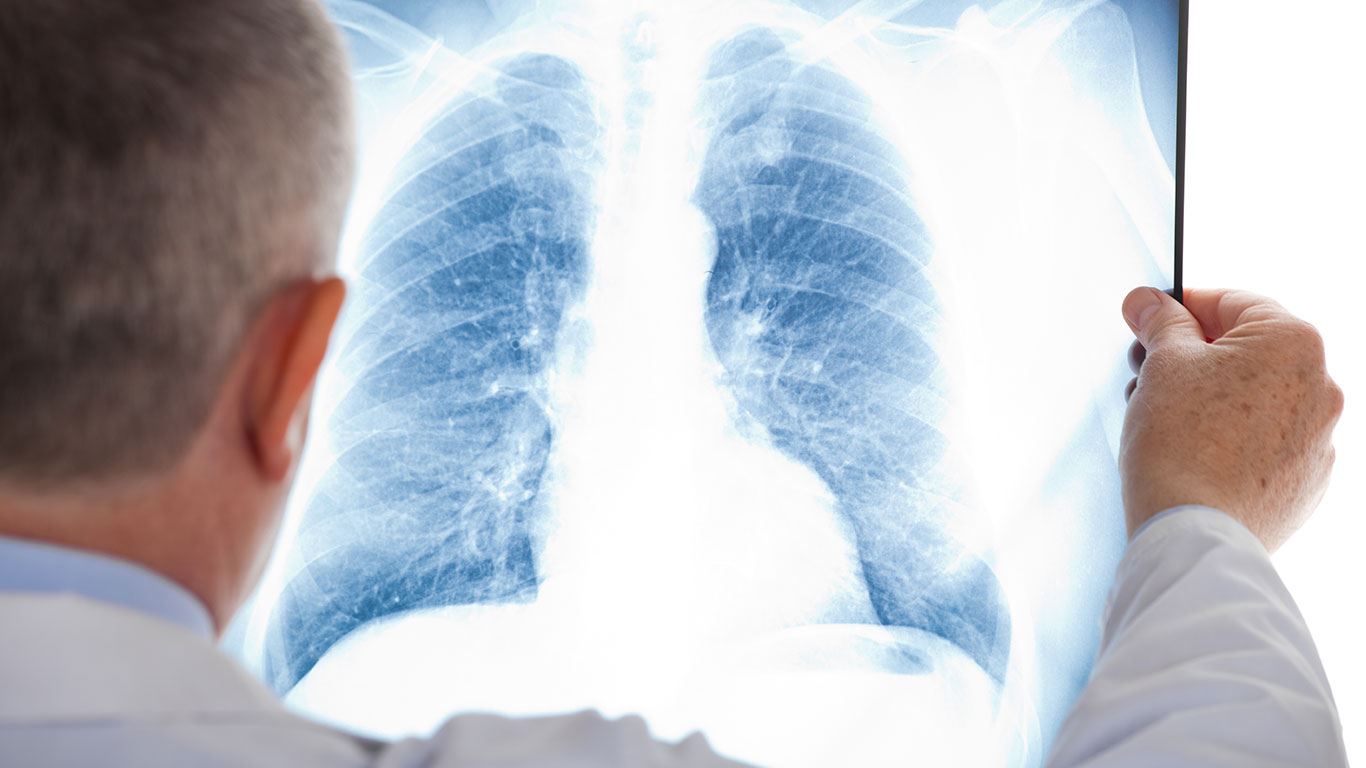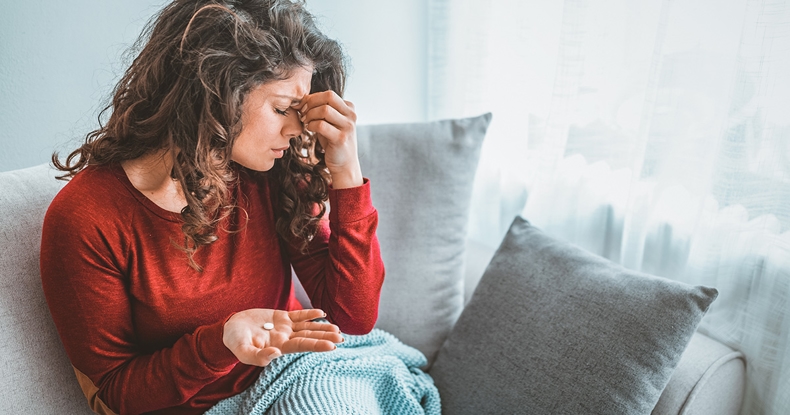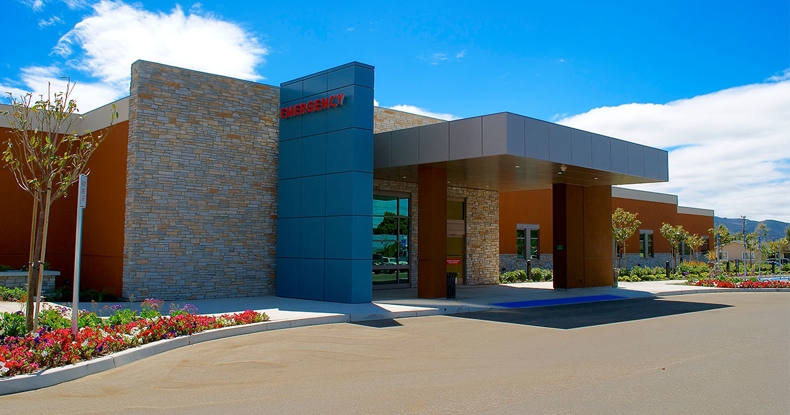How Long Does It Take the Lungs To Heal After Quitting Smoking?
- Category: Health & Wellness
- Posted On:
- Written By: LVMC

The lungs begin healing right away after quitting smoking, which is why quitting sooner than later can lead to better overall health.
Quitting smoking is one of the smartest things you can do to improve your overall health. Your lungs start healing immediately the moment you stop smoking. However, the length of time it takes for the lungs to fully heal is different for everyone.
October is Healthy Lung Month. During this month, it’s important to recognize and raise awareness about the importance of lung health and the steps you can take to reduce your risk of lung disease and cancer.
Continue reading to learn more about how quickly the lungs can heal after you stop smoking.
How Does Smoking Affect the Lungs?
Your lungs are responsible for delivering oxygen to your entire body. Oxygen is essential for all your organs and cells. Without clean oxygen or enough oxygen, you face a higher risk of illness and disease, including cancer. Oxygen is needed for optimal brain function, good mood, and energy. It can also improve your strength, boost your immune system, and reduce stress and anxiety.
Smoking can harm your lung tissue, and prevent your lungs from functioning properly. It can also prevent your lungs from transporting enough oxygen to your cells and major organs.
According to the FDA, each puff of cigarette smoke you inhale contains more than 7,000 toxic chemicals. These chemicals can damage the lungs, cause illnesses like sore throat, and narrow your lung airways. All these effects can make it more difficult for you to breathe. Fortunately, the moment you stop smoking, your risk for these problems will reduce gradually over time, and you’ll get sick less often.
What Lung Complications Are Caused By Smoking?
Smoking increases the risk for lung problems including emphysema, chronic obstructive pulmonary disease (COPD), and lung cancer. An estimated eight in 10 cases of COPD are caused by smoking. Additionally, people who smoke are 20 times more likely to develop lung cancer than non-smokers.
Smoking can also increase the risk for other cancers. These cancers include that of the larynx (voice box), trachea (windpipe), bronchus (an airway to the lungs), and the oropharynx (the entire back part of the mouth).
The CDC reports that cigarette smoking is the leading preventable cause of death in the United States. It is responsible for one in five deaths among men and women. In addition to causing various cancers, smoking can increase the risk of coronary heart disease and stroke by two to four times.
Other complications linked to smoking include fertility problems, tooth loss, and diabetes, among many others.
What Happens To the Lungs When You Quit Smoking?
Your lungs start healing right away when you quit smoking. If you are a smoker, please understand that you can potentially reverse years of damage caused by smoking if you stop today.
The FDA and CDA say that within 12 hours after your last cigarette, the carbon monoxide level in your blood returns to a normal level and increases oxygen-blood flow. Within one year of quitting smoking, your risk of experiencing a heart attack declines sharply. Within two to five years, your risk for stroke can reduce to the level of that of a non-smoker.
By the fifth year of quitting smoking, your risk for cancers of the throat, mouth, esophagus, and bladder decrease by 50%. Better yet, your risk for dying from lung cancer decreases by half at the 10-year mark after quitting.
The American Cancer Society mentions several additional benefits when you quit smoking. Your heart rate and blood pressure decrease 20 minutes after smoking. Your lung function improves within two weeks to three months after the last cigarette. During the first year after quitting, coughing and shortness of breath decrease, and your lungs become better at cleaning themselves to reduce the risk of infection.
What Are Other Benefits Of Quitting Smoking?
There are countless benefits associated with quitting smoking. You’ll notice that your quality of life increases the moment you stop.
Food will start tasting better, and you’ll gradually regain your sense of smell. You’ll also start smelling better to others who are sensitive to the odor of cigarette smoke. Smoke can make you smell bad because it can cling to your hair and clothes, and cause bad breath. Quitting smoking can even make you look more attractive, as it may stop your nails and teeth from yellowing, and also improve the appearance of your skin and hair.
Smoking is costly, and you’ll save lots of money you would otherwise have spent on cigarettes and lighters. You’ll feel more energetic and less fatigued and won’t have to worry about taking frequent breaks at home or at work to step outside and smoke.
How Can I Accelerate Lung Healing After Smoking?
Your lungs are self-cleaning, which means they will gradually heal and regenerate on their own after you quit smoking. However, there are certain lifestyle behaviors you can practice to try and accelerate the rate at which your lungs heal.
Drink Lots Of Water
Water helps flush toxins from your body, including those found in cigarettes and tobacco products. Start drinking more water to help your body detox and eliminate as many toxins as possible. Some doctors recommend drinking hot tea or water. This is because warm beverages can help thin the mucus in your lungs so you can clear it from your lungs more easily.
Eat Healthy Foods
Healthy, whole “one-ingredient” foods like fruits, vegetables, nuts, seeds, and fish are loaded with nutrients that help flush toxins from your body. The nutrients in these foods also help your cells repair themselves and contribute to new, healthy tissue growth. Your doctor can evaluate your diet and recommend changes you can make to help your lungs heal more quickly.
Exercise Regularly
Exercise increases the amount of oxygen that gets delivered to cells and tissues throughout your body. Cardiovascular exercises like brisk walking, swimming, running, and cycling are ideal for helping to clear out your lungs after you quit smoking.
Cough
For several weeks or months after you quit smoking, you may notice that your coughing persists or that it occurs more frequently. This is completely normal and is your body’s way of clearing out excess mucus that has built up in the lungs. Allow yourself to cough as often as needed, as this can help your lungs heal a bit faster.
Clean Your Living Space
Dust, pollen, mold, and pet dander are some of the many irritants that contribute to poor breathing and lung health. These substances may even delay the healing of your lungs after you stop smoking. Dust and vacuum your home often to keep it clean, and frequently clean all fans and air vents. The cleaner you keep your home, the cleaner the air will be.
Practice Deep Breathing
Deep breathing offers many health benefits for your lungs and breathing ability. It can strengthen your diaphragm, decrease oxygen demand, and release the trapped air. It can also slow your breathing rate to help you feel more calm and relaxed. If you used to smoke cigarettes to relax and reduce stress, practicing deep breathing produces a more beneficial effect.
Try Steam Therapy
Steam therapy involves inhaling water vapor. This therapy may help you breathe more easily by thinning out the mucus in your lungs and reducing inflammation in the airways.
To do steam therapy, heat water in a pot or kettle, then pour it into a tempered bowl. Drape a towel over the back of your head, then carefully lower your face toward the bowl until you are about eight inches away. Next, inhale slowly and deeply for two to five minutes. You can also buy an electric steam inhaler device made specifically for this therapy.
What Are the Best Smoking Cessation Treatments?
The most effective smoking cessation treatment is the one that works best for you and your lifestyle. Some treatments may work better for you than for others. The best thing you can do is learn about all your treatment options, and choose the one you think is ideal for you. You may need to try several treatments before you find one that works.
Some of the most common smoking cessation treatments are medications and nicotine replacement products.
Medications can reduce cravings for cigarettes, along with other nicotine withdrawal symptoms. Your doctor can write you a prescription for these medications and discuss their pros and cons, including potential side effects.
Nicotine replacement products include patches, gums, nasal sprays, inhalers, and lozenges. Each of these products contains nicotine to help you adjust to a non-smoking lifestyle without having cigarette cravings and withdrawal symptoms. These products come with different levels of nicotine so you can reduce your nicotine intake gradually over time until you no longer need it.
Lung and Smoking Cessation Treatments At Lompoc Valley Medical Center
Lompoc Valley Medical Care is home to a large team of board-certified medical professionals who can treat nearly every health condition, including lung disease, lung cancer, and nicotine dependence. We can help you quit smoking, and also help you recover from the effects of long-term smoking and lung damage. Visit our provider page today to make an appointment and to learn more about our many available healthcare services for you and your family.






